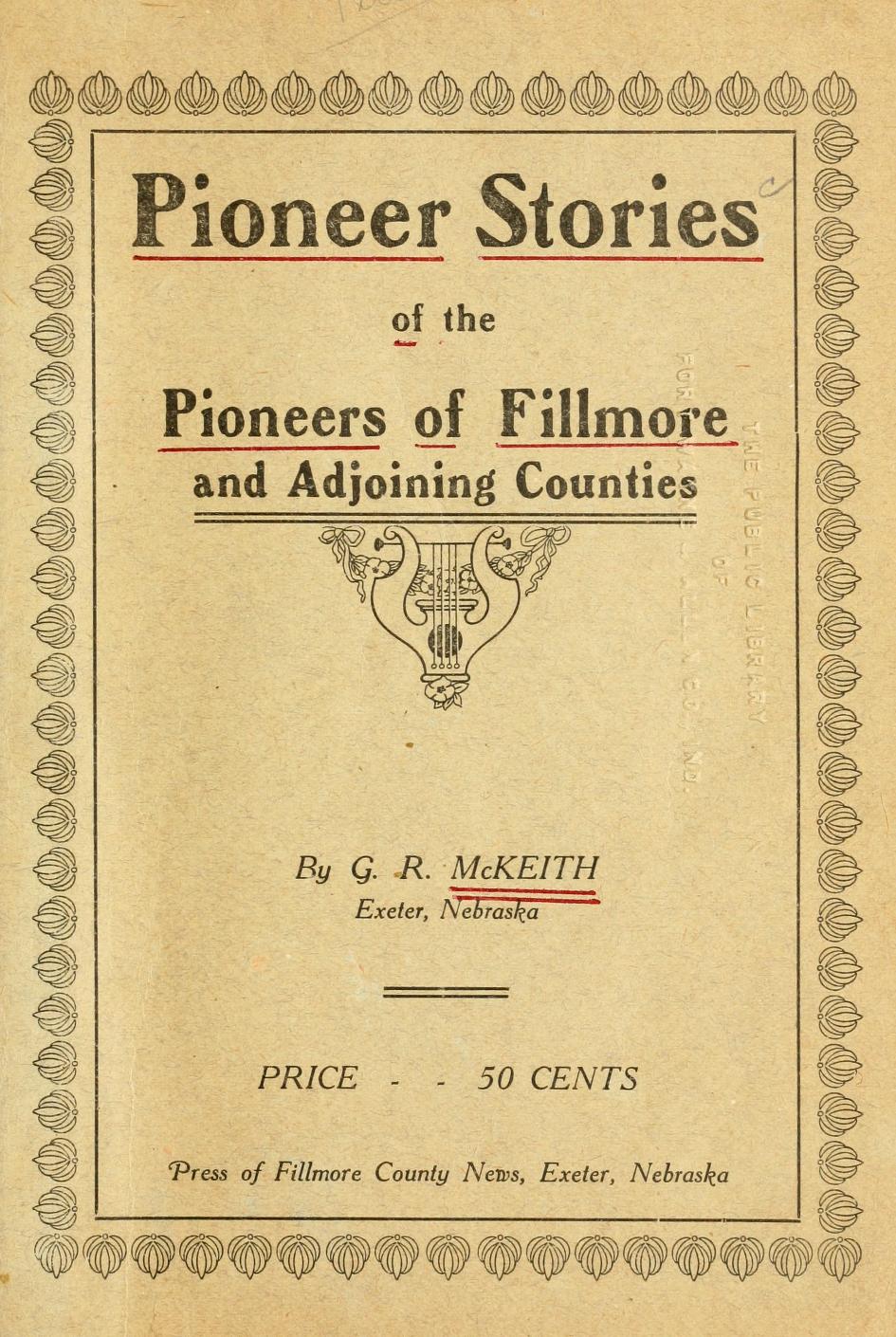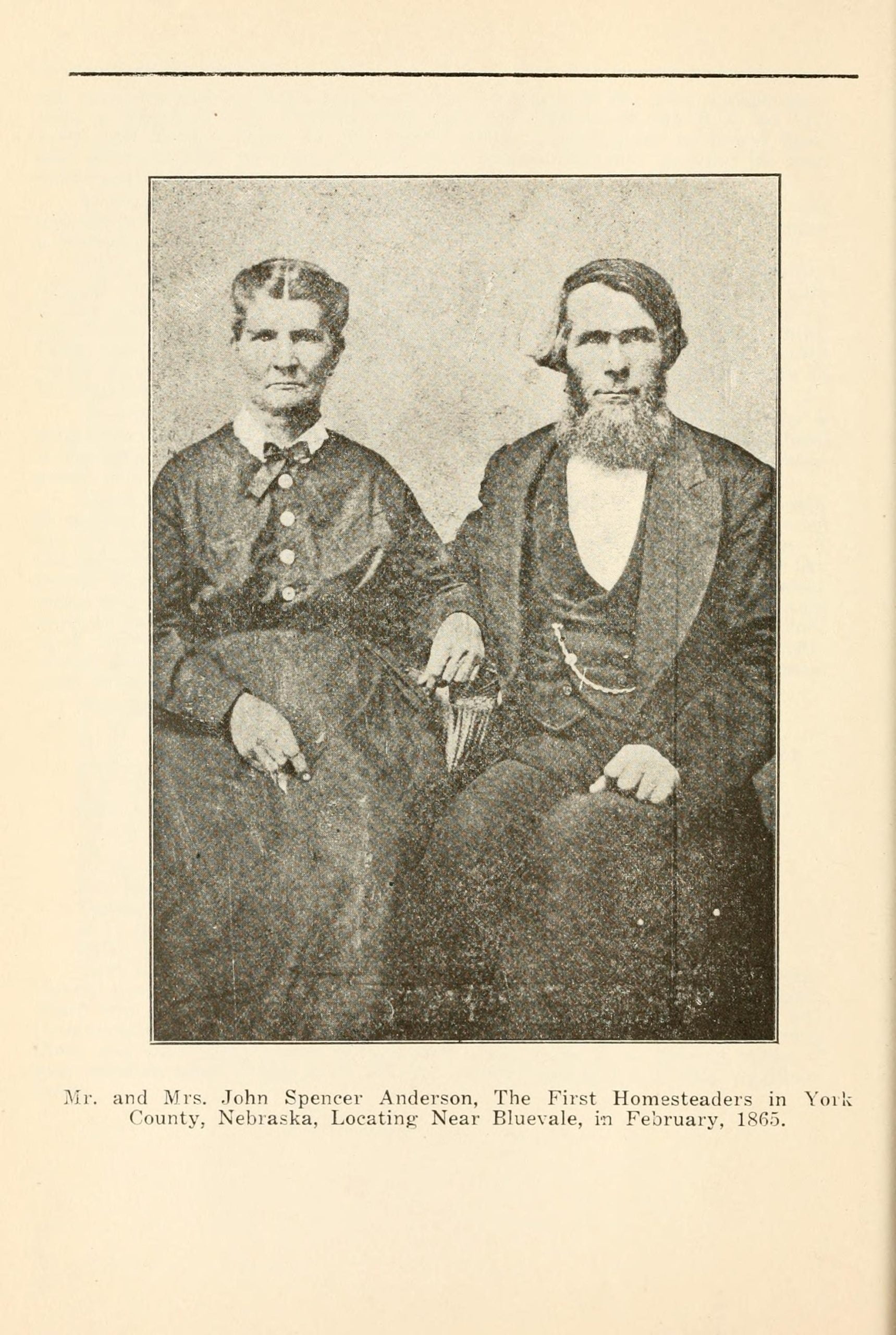Biography of William Mann
William Mann was born in Pennsylvania, but lived for some time in Knox County, Illinois. He came to Nebraska in the fall of 1869, settling in the McFadden Township, York County. He brought with him his wife and seven children. William W. Mann his eldest son, to whom we are indebted for these reminiscences worked for Elias Gilmore (one of the oldest settlers in York County) for about two years and drove oxen all that time. At the age of fifteen years he was doing equal to a man’s work for $15 a month. Mr. Gilmore raised the first wheat … Read more


